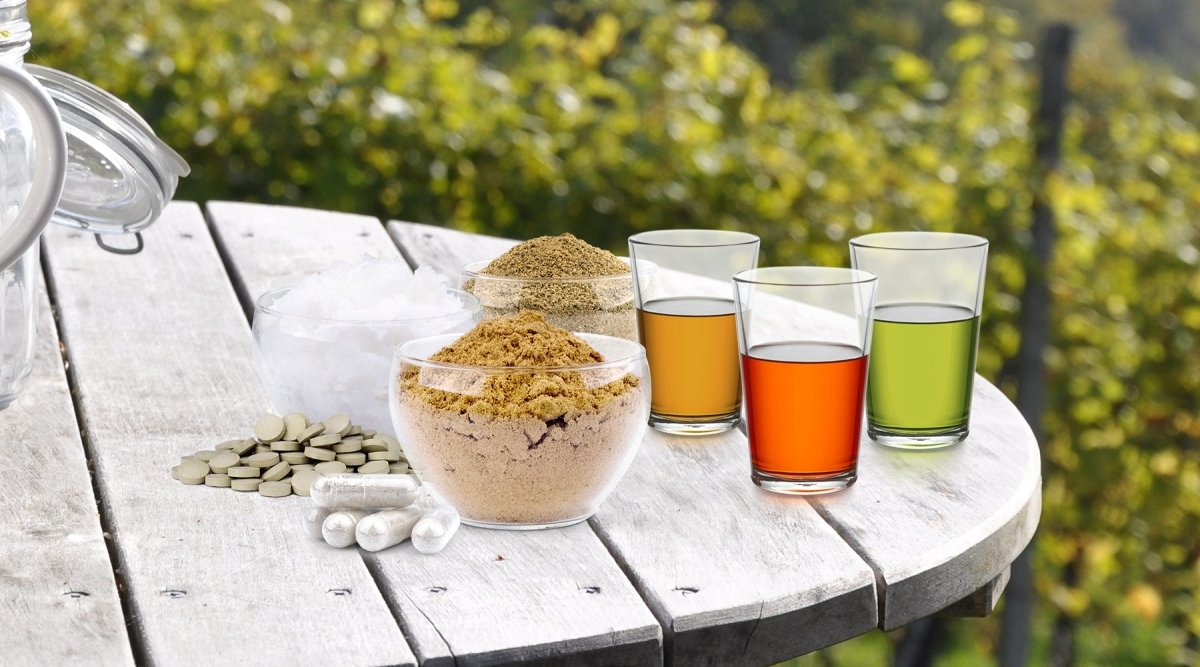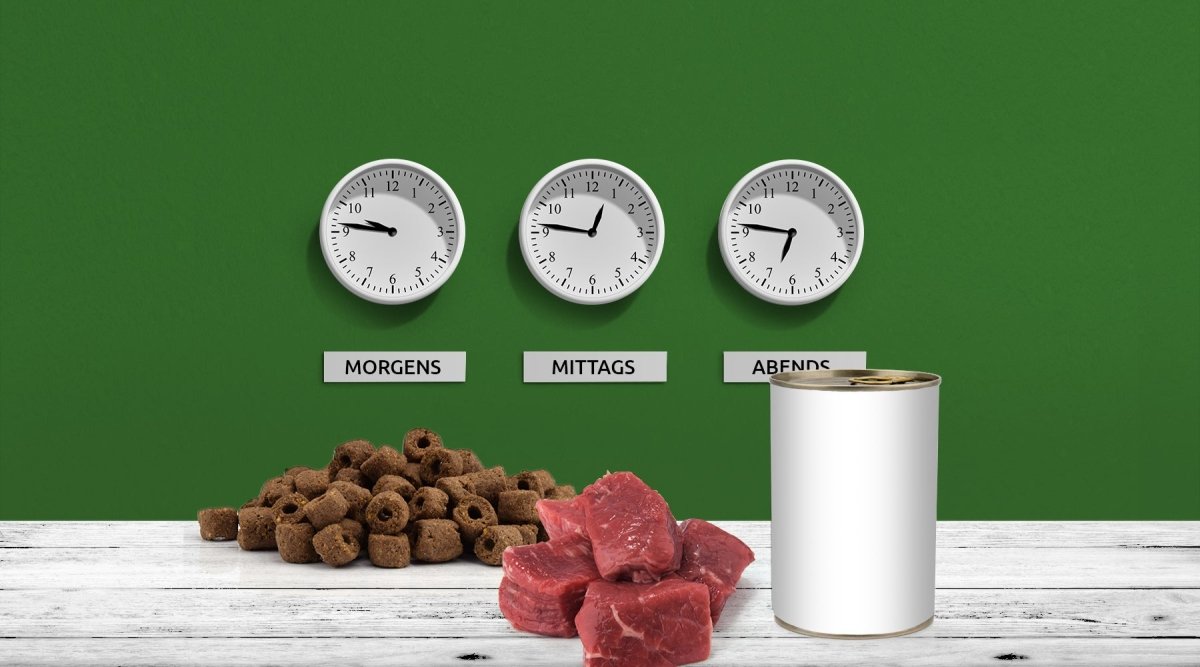Feed supplements should not be exposed to high temperatures during the warmer months. But what is the best way to store feed supplements? In the fridge? In the cellar? Protected from light or in a bright place? Our veterinary practitioner Angelica explains today where you should store which feed supplements so that they stay fresh and effective for as long as possible.
Supplement is not a substitute
Feedsupplements are additives that are added to your pet's normal diet to supplement it with important nutrients, vitamins and minerals. Feed supplements can be herbs, plant and animal products, fiber and oils. Feed supplements are added either individually or in combination. You can find feed supplements in concentrated form, for example as tablets, capsules or as powder and liquid, for intake in small doses.
Information on the packaging indicates that these are feed supplements. According to their name, these products are not a substitute for a balanced and varied diet. Rather, the food supplements are intended to support your dog or cat in staying healthy and fit.
Our food supplements are all made from a purely natural composition that is sensitive to light, high temperatures and moisture. Our food supplements are therefore packaged in special, airtight and light-protective bags, tins or bottles. On each package you will find information on the shelf life of the product.
Correct storage is the be-all and end-all
The feed supplements from AniForte® feed supplements should ideally be stored in the sealed original packaging. On the one hand, this protects them from sunlight and, on the other hand, prevents herbal mixtures, for example, from attracting moisture. Here is an overview of the correct storage depending on the type of feed supplement.
Herbs/herbal mixtures
Many of the ingredients in feed supplements, including essential oils and flavonoids, degrade when exposed to light or UV radiation. Therefore, the correct storage of feed supplements such as herbs or herbal mixtures is crucial for their shelf life. The right containers for the feed supplements play an important role here. These should preserve the aroma and, above all, be light-repellent and impermeable to air and moisture. In this way you preserve the valuable ingredients, the aroma and the healing effect of these feed supplements.
Oils
The way oils are stored has a considerable influence on their quality and shelf life and therefore also on the effect of the feed supplements. If the oil is not stored correctly, it will become bitter or rancid before the expiry date has been reached. Oils should generally be stored in a cool, dark place and kept airtight, especially linseed oil, hempoil and salmon oil. This means you can store it for between 9 and 12 months.
It is important to seal the bottle airtight so that the valuable ingredients of the food supplements are not destroyed. Once opened, bottles of linseedhemp and salmon oil should therefore be used up quickly, i.e. within 6-8 weeks. During this time, the sensitive oils should be stored in the refrigerator at 5-10 degrees. A special feature of salmon and linseed oil is that you can also freeze both. This means they can be kept for up to six months and can be used as a feed supplement for a long time.
Evening primrose oil and black cumin oil should be kept carefully sealed in a cool, dark and dry place once the bottle has been opened. It is not necessary to store them in the refrigerator. Once opened, you should consume the feed supplement within a few months.
Natural, virgin coconut oil can also be used as a feed supplement. can also be used as a feed supplement. This has a very long shelf life. Unopened, the oil can be kept for about two years. When opened and stored correctly, you can use it for a good year. Coconut oil should not be kept in the fridge, as air gets in every time the jar is opened. If this then cools down in the fridge, condensation forms in the jar, creating a breeding ground for microbes and bacteria. Coconut oil stored in the refrigerator is also quite hard and makes it difficult to portion as a feed supplement.
Coconut oil is best stored away from light in a cool place, such as the pantry or kitchen cupboard. In this way, the oil retains a relatively creamy consistency and can be easily removed and dosed as a feed supplement. If the temperature rises above 20°C, the oil may liquefy. This is perfectly normal and does not indicate poor quality. If you do not want the oil to be liquid, it would be a good idea to store the jar in a cold cellar.
Wet food
The storage of AniForte PureNature wet food for dogs and cats is much easier. Thanks to the boiling down process, it can be kept unopened for around three years, even without preservatives. Nevertheless, it should be stored in a cooler room such as a cellar or pantry. The best-before date is marked on every tin of wet food and always refers to closed tins.
Opened can s should not be stored at room temperature, but should be covered with a lid, cling film or plastic wrap and placed in the refrigerator. The contents of the opened can should then be fed within two days. For the meal, remove the appropriate food ration from the cold tin in good time so that it can reach a comfortable eating temperature for your four-legged friend. The rest of the can remains in the refrigerator so that the cold chain is not interrupted.
Food that has been warmed up but not used up should not be given to your four-legged friend again. After the cold chain has been interrupted, numerous bacteria and microorganisms can form on the food. Although the growth of these microorganisms is contained again at refrigerator temperatures, they are always present and some of them multiply even at temperatures that are only just above freezing. To avoid gastrointestinal problems caused by pathogenic germs, especially in dogs with sensitive stomachs, you should therefore dispose of the leftovers.
If you follow these tips for storing food supplements, you and your four-legged friend will be able to enjoy the products for longer.



